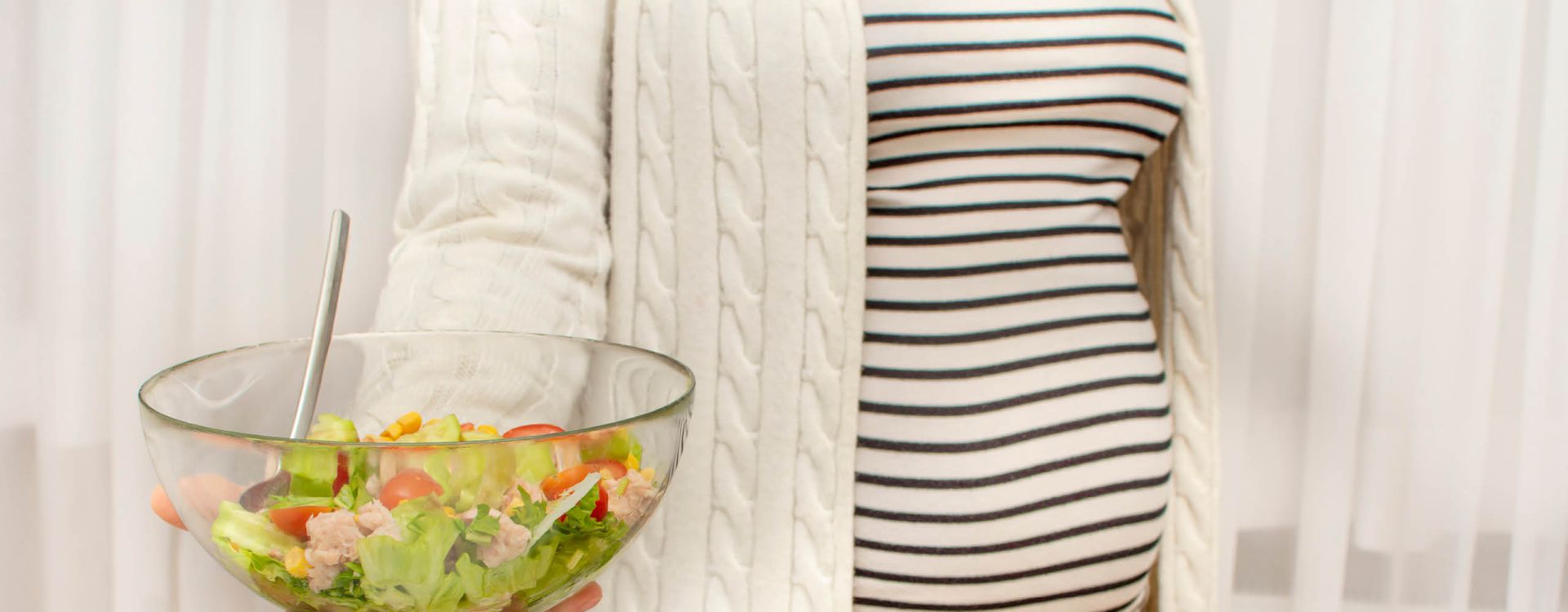Pregnancy is a thrilling journey, and prioritizing your health is essential for both you and your baby.
One nutrient that plays a major role during this time is Vitamin D. It helps with everything from strong bones to boosting your immune system. But did you know that getting enough Vitamin D can also reduce the risk of complications like preterm birth and gestational diabetes?
Whether you're getting it from the sun, your diet, or supplements, we’ll help you understand why Vitamin D is so important and how to make sure you're getting the right amount!
What Is Vitamin D?
Vitamin D is a key nutrient that supports bone health, boosts immunity, and helps balance calcium and phosphorus in the body. Known as the "sunshine vitamin," it's made when your skin is exposed to sunlight, but you can also get it from foods like fatty fish, fortified dairy, and eggs, or through supplements.
The two main types are D2 and D3, with D3 being the more effective form. In addition to its role in bones and immunity, Vitamin D also supports mood, muscle function, and reduces inflammation.
Can You Take Vitamin D While Pregnant?
Yes, you can (and should) take Vitamin D during pregnancy. It’s an essential nutrient that helps support your health and your baby’s development, from strong bones to a healthy immune system.
Pregnancy increases your need for Vitamin D, which plays a major role in calcium absorption, boosting immunity, and keeping both mom and baby in top shape. It also helps protect against complications like preeclampsia and gestational diabetes.
While sunlight helps your body produce Vitamin D, it can be tough to get enough through sun exposure alone, especially in the winter months or in places with limited sunlight [*].
The general recommendation is around 600 IU daily, though some doctors may suggest higher doses if you’re at risk of deficiency. As always, be sure to check with your healthcare provider to find the right amount for you and your growing little one [*].
The Importance of Vitamin D During Pregnancy
Vitamin D is essential during pregnancy, supporting strong bones, a healthy immune system, and a positive mood. It reduces the risk of complications and helps set the stage for a smoother, healthier pregnancy for both you and your baby.
Supports Bone Health
Vitamin D plays a huge role in helping your body absorb calcium, which is essential for building strong bones and teeth.
During pregnancy, your baby’s skeleton is growing fast, and they rely on the calcium you’re getting from your diet and supplements. With enough Vitamin D, your body can absorb that calcium efficiently. This ensures your baby’s bones are developing properly, while also keeping your own bones strong and healthy as your body goes through all its amazing changes [*][*].
Boosts Immune Function
Pregnancy can sometimes leave your immune system a little more vulnerable. Vitamin D is key in supporting immune health by helping your body fight off infections such as bronchiolitis and pneumonia, or inflammation [*].
Studies have shown that pregnant women with adequate levels of Vitamin D are less likely to experience issues like preterm birth or gestational diabetes, as it helps regulate the immune response and reduces the risk of health complications during pregnancy [*].
Improves Mood and Mental Well-Being
Taking care of your mental well-being is just as important as your physical health during pregnancy. Vitamin D plays a big role in keeping your mood balanced, and research suggests it may even help reduce the risk of pregnancy-related depression.
Low levels of Vitamin D have been linked to mood swings, so making sure you're getting enough can help you feel your best and keep those good vibes flowing throughout your pregnancy [*].
Promotes Healthy Pregnancy Outcomes
Vitamin D is a true game-changer for a healthy pregnancy. Keeping your Vitamin D levels in check can also help prevent complications such as preeclampsia, gestational diabetes, and low birth weight. Plus, it may even give your little one a head start in avoiding future health issues like asthma and type 1 diabetes.
With Vitamin D on your side, you’re setting the stage for a smoother pregnancy and a healthier future for both you and your baby [*].
Risks of Vitamin D Deficiency in Pregnancy
Vitamin D is essential for your body to function correctly, and if you don’t get enough of it, you can start to feel its effects.
Here are a few potential side effects of not getting enough Vitamin D during your pregnancy:
Increased Risk of Preterm Birth
Vitamin D deficiency during pregnancy can raise the risk of preterm birth by interfering with important processes that support a healthy pregnancy.
Vitamin D helps regulate the immune system, control inflammation, and support placental development. When Vitamin D levels are low, these processes can be disrupted, making preterm birth more likely.
Studies show that pregnant women with low Vitamin D levels (below 20 ng/mL) are at a higher risk of delivering early. This highlights the importance of keeping Vitamin D levels in check during pregnancy to help reduce the chances of preterm birth and improve outcomes for both mom and baby [*].
Gestational Hypertension
Low levels of Vitamin D during pregnancy can disrupt your body’s balance in various ways.
A deficiency in Vitamin D can lead to increased inflammation and disrupt calcium levels, which may affect blood flow and the function of the placenta.
This can make it harder for your body to keep your blood pressure in check, increasing the risk of developing gestational hypertension.
So, not getting enough Vitamin D can kick off a chain reaction that makes high blood pressure more likely [*].
What Is the Ideal Vitamin D Level During Pregnancy?
When it comes to Vitamin D during pregnancy, most experts recommend aiming for at least 20 ng/ml of Vitamin D (the level measured in your blood) [*].
To get there, daily doses can range from 400-600 IU, which is the Institute of Medicine's guideline. However, some organizations, like the Endocrine Society, suggest 1500-2000 IU daily, and studies show that 2000-4000 IU/day is both safe and effective at lowering pregnancy risks like gestational diabetes and high blood pressure, without causing any harm [*].
Some experts even think that getting your Vitamin D levels above 40 ng/ml could be even better for both mom and baby [*].
Always check with your doctor to find the right dose for you.
Symptoms of Vitamin D Deficiency in Pregnancy
Vitamin D is super important during pregnancy, but many women don't get enough. If you're experiencing any of these common symptoms, it could be a sign of deficiency:
Extreme Fatigue
Low Vitamin D during pregnancy can leave you feeling drained. It plays a key role in balancing energy-boosting neurotransmitters like serotonin and dopamine. Without enough Vitamin D, these can get out of sync, leading to fatigue.
Plus, Vitamin D helps manage inflammation and oxidative stress, which can also zap your energy. Keeping your levels up can help you feel more energized and less sluggish [*].
Bone and Muscle Pain
Low Vitamin D during pregnancy can cause muscle and bone pain because it helps your body absorb calcium for strong bones and muscles. When Vitamin D is low, you might feel sore, achy, or have muscle cramps. This is common in areas with little sunlight or for women who struggle to absorb Vitamin D.
Getting enough of it during pregnancy is key to keeping both mom and baby healthy and pain-free [*].
Mood Swings or Depression
Struggling with mood changes or feeling down? Research links Vitamin D deficiency to an increased risk of prenatal depression, so it’s worth checking your levels if you're feeling more emotional than usual [*].
If these sound familiar, it’s a good idea to talk to your doctor about getting your Vitamin D levels checked to see if supplementation is right for you.
How to Get Enough Vitamin D While Pregnant
Getting enough Vitamin D during pregnancy can be tricky. Whether it’s due to limited sun exposure or not getting enough from your diet, it’s important to make sure you're meeting your Vitamin D needs. Here are some ways to boost your intake:
- Fatty Fish: Salmon, mackerel, and sardines are loaded with Vitamin D. Just a few servings a week can go a long way in keeping your levels up.
- Fortified Foods: Look for foods like fortified milk, orange juice, and cereals. These products are specially enriched with Vitamin D to help meet your daily needs.
- Eggs: Egg yolks are another easy source of Vitamin D. Try adding them to your meals a few times a week for an extra boost.
- Mushrooms: Certain types of mushrooms, especially those exposed to UV light like shiitake, chanterelle, or oyster mushrooms can be a surprising source of Vitamin D. They're a great option for vegetarians or anyone looking to mix things up.
- Supplements: Sometimes, diet alone isn’t enough to meet your Vitamin D needs, especially during the winter months. Taking a prenatal vitamin or Vitamin D supplement can help you stay on track.
By including these foods in your diet and getting some sun exposure (safely, of course!), you'll be helping both you and your baby stay strong and healthy throughout your pregnancy [*].
Do Prenatals Have Vitamin D?
Prenatal vitamins usually have Vitamin D (around 400-800 IU), which is great for both your bones and your baby’s development.
While these vitamins cover most of your nutrient needs, you might still need extra supplements based on your health or pregnancy history.
It's always a good idea to check with your doctor before adding anything extra to make sure you're not going overboard [*].
When to Start Taking Vitamin D During Pregnancy
If you're thinking about getting pregnant, it's a good idea to start taking prenatal vitamins as soon as you start trying. Your doctor will often calculate your pregnancy from your last period, so by the time you find out you're pregnant, you could already be 4-6 weeks along.
If your pregnancy isn't planned and you find out later, don't worry, just start taking them as soon as you can.
The first trimester is when major development happens, like the brain and spinal cord, and those vitamins are important during this time. Plus, if you're breastfeeding, it's recommended to keep taking prenatal vitamins to continue providing those essential nutrients to your baby [*].
Vitamin D and Pregnancy FAQ
Is it safe to take Vitamin D tablets while pregnant?
Taking Vitamin D supplements during pregnancy is generally safe and often recommended. Vitamin D is important for bone health and immune function for both mom and baby. However, it's always best to consult your healthcare provider to determine the right dose for you [*].
How much Vitamin D should you take during pregnancy?
Pregnant women need at least 400-600 IU of Vitamin D per day, especially between September and March when sunlight is limited. A supplement is often recommended during these months since it's tough to get enough from food alone. In some cases, your doctor may suggest higher doses if you're Vitamin D deficient [*][*].
Is 1000 IU of Vitamin D safe during pregnancy?
Yes, 1000 IU of Vitamin D is generally considered safe during pregnancy. In fact, some studies suggest that this amount may be beneficial, especially if you're not getting enough from sunlight or food [*].
Is 5000 IU of Vitamin D safe during pregnancy?
5000 IU of Vitamin D can be safe during pregnancy in some cases, especially for women with low levels. While typical recommendations are lower, some studies suggest higher doses like 5000 IU can be beneficial, but it’s best to consult your healthcare provider to find the best dosage for you [*].
Can I take prenatal vitamins and Vitamin D3 together?
Yes, you can take prenatal vitamins and Vitamin D3 together. Most prenatal vitamins already have some Vitamin D, but if your doctor recommends extra, it’s usually safe. If you’re unsure, it’s always best to double-check with your doctor [*].
Can low Vitamin D harm my unborn baby?
Yes, Vitamin D deficiency during pregnancy has been linked to complications like gestational diabetes, preeclampsia, and low birth weight. It can also affect your baby’s bone health. Getting enough Vitamin D is important for both mom and baby [*].
Is Vitamin D linked to miscarriage?
Vitamin D may be linked to a lower risk of miscarriage, with studies showing that women with sufficient Vitamin D levels before conception are less likely to experience pregnancy loss. Specifically, each 10 ng/mL increase in preconception Vitamin D was associated with a 12% lower risk of miscarriage [*].
Can too much Vitamin D be harmful during pregnancy?
Taking too much Vitamin D during pregnancy can be risky, especially if you go over the upper limit of 4000 IU per day. While Vitamin D is essential for both you and your baby, excessive amounts can lead to high calcium levels, potentially causing kidney issues and affecting your baby's development. Always check with your doctor before taking extra Vitamin D supplements to stay within safe limits [*].
The Bottom Line
Vitamin D is really important during pregnancy for both your health and your baby’s development, but it’s essential not to overdo it as taking too much can lead to issues like high calcium levels and kidney problems, and even affect your baby’s development.
Always check in with your doctor to figure out the right amount for you and make sure you’re not going overboard.
About MiracleCord
MiracleCord offers cutting-edge umbilical cord blood stem cell banking at affordable prices. Stem cell treatments are already benefiting patients with over 80 FDA-approved treatments, and ongoing clinical trials are exploring thousands of additional potential uses.
Find out why MiracleCord was recognized as the Best U.S. Cord Blood Bank by Global Health & Pharma. Request a complimentary information kit or give us a call at 888.743.2673 to learn more about how we can help safeguard your family’s health.
DISCLAIMER: THE INFORMATION ON THIS WEBSITE IS NOT INTENDED TO BE USED AS MEDICAL ADVICE.The materials and information contained on the MiracleCord website is provided for educational and informational purposes only, and is not intended to, and does not constitute, medical or other health advice or diagnosis, and should not be used as such. You should not use this information to diagnose or treat a health problem or disease. If you are seeking personal medical advice, you should consult with a licensed physician. Always consult with a qualified health care provider regarding a medical condition.




